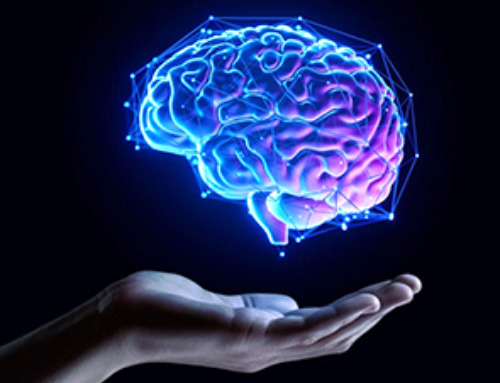CBD is gaining popularity as a remedy for pregnancy symptoms like nausea and anxiety, but new research suggests it may not be as safe as many believe.
A study from McMaster University found that oral cannabis use, including both THC and CBD, is linked to impaired fetal growth, abnormal placental development, and long-term behavioral changes in offspring.
CBD Use in Pregnancy: Research Uncovers Potential Risks
Cannabidiol (CBD), a compound in cannabis often used for therapeutic purposes, is becoming increasingly popular among pregnant individuals to help manage symptoms like nausea, anxiety, and sleep disturbances. While many believe that CBD — especially when taken orally — is a safer option, research on its effects during pregnancy remains limited.
A new study from researchers at McMaster University sheds light on this knowledge gap, revealing potential risks linked to both CBD and tetrahydrocannabinol (THC), the psychoactive component of cannabis. The findings suggest that using these substances during pregnancy may impair fetal growth and development.
Published today (February 5, 2025) in eBioMedicine, part of The Lancet Discovery Science, the study found that oral cannabis use from early to mid-pregnancy was associated with restricted fetal growth, changes in placental development, and long-term effects on offspring behavior, including altered aggression, activity levels, and learning ability.
Perception vs. Reality: Is CBD Really Safe?
"The use of cannabis during pregnancy is rising in Canada. Most previous studies focus on exposure to cannabis smoke or just the psychoactive component of cannabis (THC), leaving other cannabis ingredients and methods of consumption understudied. However, consuming cannabis orally or only using other cannabis ingredients like CBD, is often perceived as safer despite this lack of evidence. Our study is shedding light that there's a possibility that CBD might also be harmful in the pregnancy," says Tyrah Ritchie, who led the study while completing her master's degree in the Medical Sciences program at McMaster University and with the McMaster Immunology Research Centre.
Cannabis Use May Impact Growth and Behavior
The group of scientists led by Ritchie and Ali Ashkar, professor with McMaster's Department of Medicine, conducted the research by administering cannabis oil to mouse models and followed the development of the fetuses during pregnancy and post-birth.
The researchers found that both THC and CBD impaired fetal growth causing fetuses to be small when compared to mice that did not receive cannabis. Additionally, they found that both THC and CBD impact the development of the blood vessels that supply the placenta and therefore the baby with nutrients.
"We did see that both THC and CBD can disrupt a special type of immune cell called a Uterine NK Cell that is crucial in normal development of the placenta. We also saw poor development of the arteries that help supply blood to the placenta. We're thinking this is what is possibly disrupting the nutrient and oxygen delivery to the baby and contributing to the intrauterine growth restriction," says Ashkar.
Long-Term Effects on Offspring Behaviour
When observing the behavior of the babies post-birth, researchers found changes in their aggression, activity levels, and even learning ability.
"Oral use of THC and CBD during the pregnancy not only disrupts the growth of the baby but seems to have long-term consequences as the babies were found to have changes in their behavior later in life," says Ritchie.
More Research Needed on CBD and Pregnancy
Ritchie says more research is needed to better understand the impacts of cannabis in humans during pregnancy, but says this study shows the possibility of it being dangerous or harmful.
Reference: "The impact of oral cannabis consumption during pregnancy on maternal spiral artery remodelling, fetal growth and offspring behaviour in mice" by Tyrah M. Ritchie, Emily Feng, Fatemeh Vahedi, Sofya Ermolina, Christian J. Bellissimo, Erica De Jong, Ana L. Portillo, Sophie M. Poznanski, Lauren Chan, Sara M. Ettehadieh, Deborah M. Sloboda, Dawn M.E. Bowdish and Ali A. Ashkar, 5 February 2025, eBioMedicine.
DOI: 10.1016/j.ebiom.2025.105572
Funding for the study was provided by The Michael G. DeGroote Centre for Medicinal Cancer Research, the Canadian Institutes of Health Research, and the Canadian Foundation for Innovation.
News
Urgent warning over deadly ‘brain swelling’ virus amid fears it could spread globally
Airports across Asia have been put on high alert after India confirmed two cases of the deadly Nipah virus in the state of West Bengal over the past month. Thailand, Nepal and Vietnam are among the [...]
This Vaccine Stops Bird Flu Before It Reaches the Lungs
A new nasal spray vaccine could stop bird flu at the door — blocking infection, reducing spread, and helping head off the next pandemic. Since first appearing in the United States in 2014, H5N1 [...]
These two viruses may become the next public health threats, scientists say
Two emerging pathogens with animal origins—influenza D virus and canine coronavirus—have so far been quietly flying under the radar, but researchers warn conditions are ripe for the viruses to spread more widely among humans. [...]
COVID-19 viral fragments shown to target and kill specific immune cells
COVID-19 viral fragments shown to target and kill specific immune cells in UCLA-led study Clues about extreme cases and omicron’s effects come from a cross-disciplinary international research team New research shows that after the [...]
Smaller Than a Grain of Salt: Engineers Create the World’s Tiniest Wireless Brain Implant
A salt-grain-sized neural implant can record and transmit brain activity wirelessly for extended periods. Researchers at Cornell University, working with collaborators, have created an extremely small neural implant that can sit on a grain of [...]
Scientists Develop a New Way To See Inside the Human Body Using 3D Color Imaging
A newly developed imaging method blends ultrasound and photoacoustics to capture both tissue structure and blood-vessel function in 3D. By blending two powerful imaging methods, researchers from Caltech and USC have developed a new way to [...]
Brain waves could help paralyzed patients move again
People with spinal cord injuries often lose the ability to move their arms or legs. In many cases, the nerves in the limbs remain healthy, and the brain continues to function normally. The loss of [...]
Scientists Discover a New “Cleanup Hub” Inside the Human Brain
A newly identified lymphatic drainage pathway along the middle meningeal artery reveals how the human brain clears waste. How does the brain clear away waste? This task is handled by the brain’s lymphatic drainage [...]
New Drug Slashes Dangerous Blood Fats by Nearly 40% in First Human Trial
Scientists have found a way to fine-tune a central fat-control pathway in the liver, reducing harmful blood triglycerides while preserving beneficial cholesterol functions. When we eat, the body turns surplus calories into molecules called [...]
A Simple Brain Scan May Help Restore Movement After Paralysis
A brain cap and smart algorithms may one day help paralyzed patients turn thought into movement—no surgery required. People with spinal cord injuries often experience partial or complete loss of movement in their arms [...]
Plant Discovery Could Transform How Medicines Are Made
Scientists have uncovered an unexpected way plants make powerful chemicals, revealing hidden biological connections that could transform how medicines are discovered and produced. Plants produce protective chemicals called alkaloids as part of their natural [...]
Scientists Develop IV Therapy That Repairs the Brain After Stroke
New nanomaterial passes the blood-brain barrier to reduce damaging inflammation after the most common form of stroke. When someone experiences a stroke, doctors must quickly restore blood flow to the brain to prevent death. [...]
Analyzing Darwin’s specimens without opening 200-year-old jars
Scientists have successfully analyzed Charles Darwin's original specimens from his HMS Beagle voyage (1831 to 1836) to the Galapagos Islands. Remarkably, the specimens have been analyzed without opening their 200-year-old preservation jars. Examining 46 [...]
Scientists discover natural ‘brake’ that could stop harmful inflammation
Researchers at University College London (UCL) have uncovered a key mechanism that helps the body switch off inflammation—a breakthrough that could lead to new treatments for chronic diseases affecting millions worldwide. Inflammation is the [...]
A Forgotten Molecule Could Revive Failing Antifungal Drugs and Save Millions of Lives
Scientists have uncovered a way to make existing antifungal drugs work again against deadly, drug-resistant fungi. Fungal infections claim millions of lives worldwide each year, and current medical treatments are failing to keep pace. [...]
Scientists Trap Thyme’s Healing Power in Tiny Capsules
A new micro-encapsulation breakthrough could turn thyme’s powerful health benefits into safer, smarter nanodoses. Thyme extract is often praised for its wide range of health benefits, giving it a reputation as a natural medicinal [...]





















